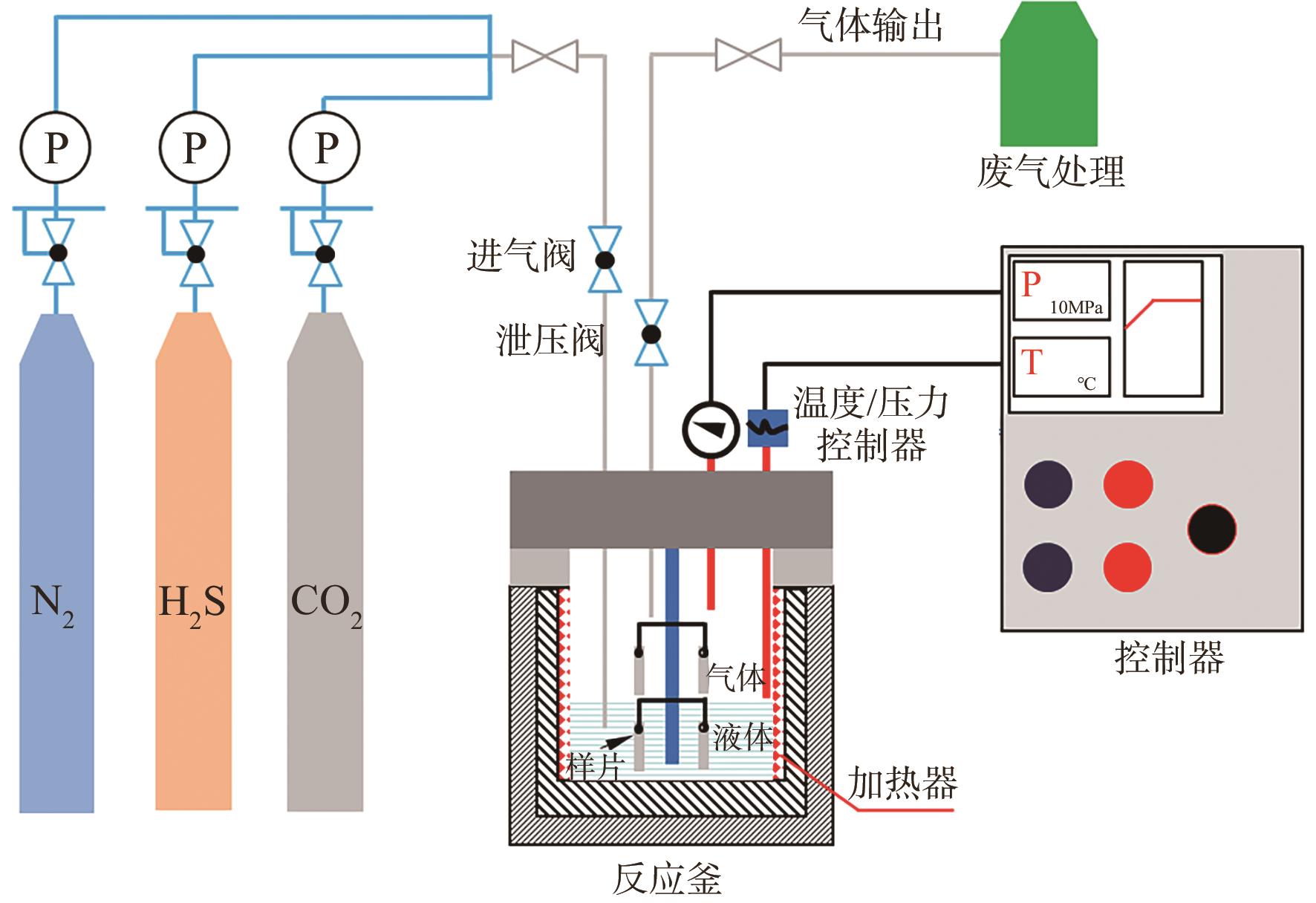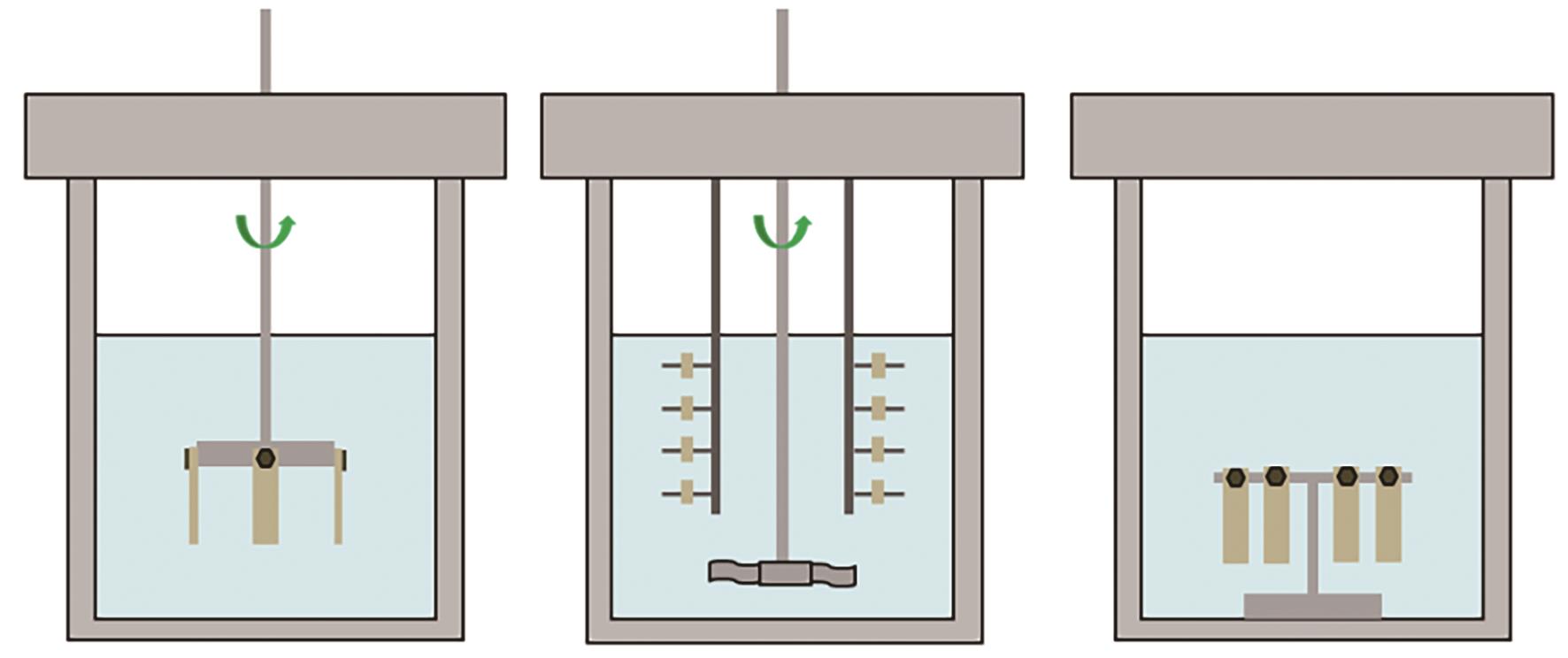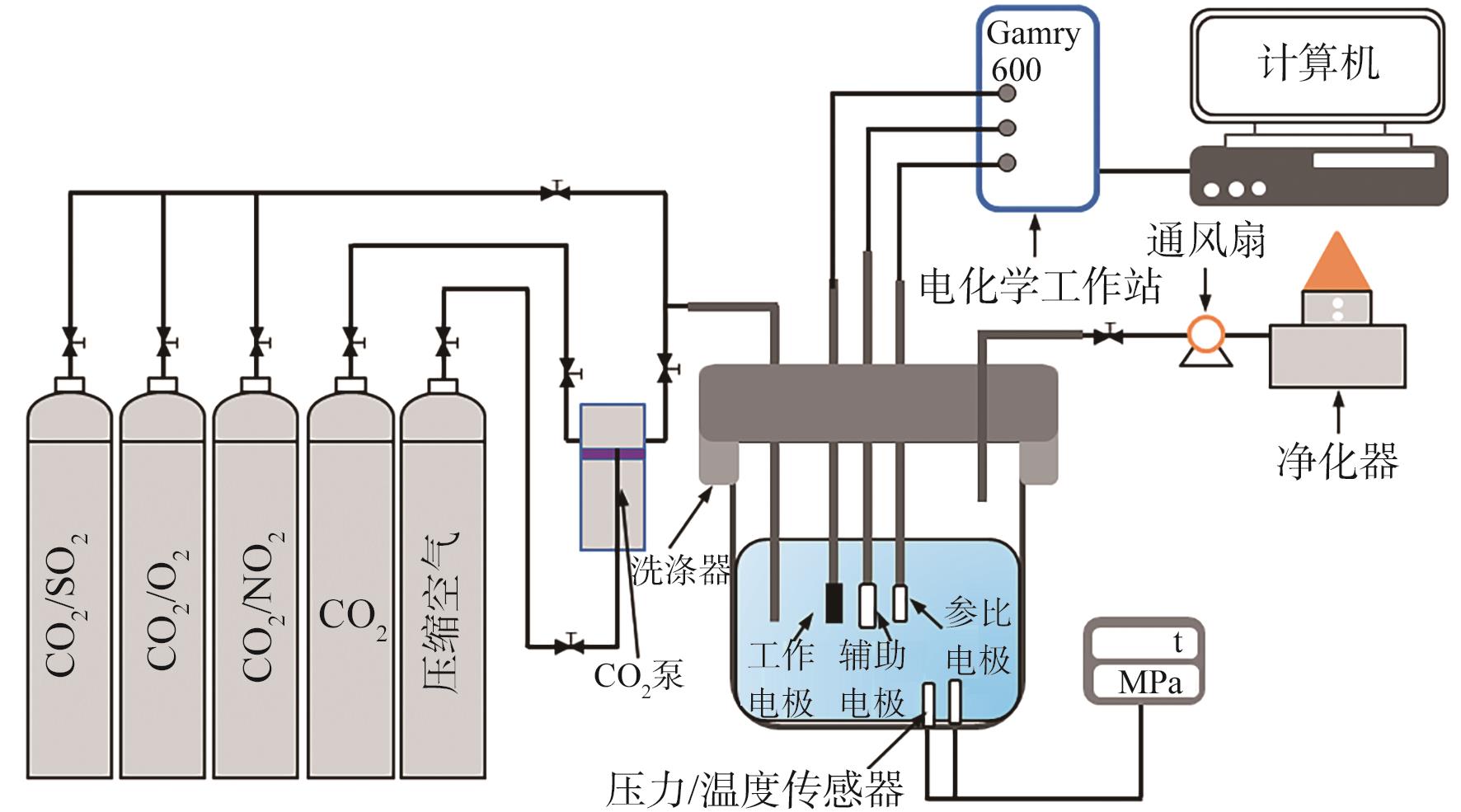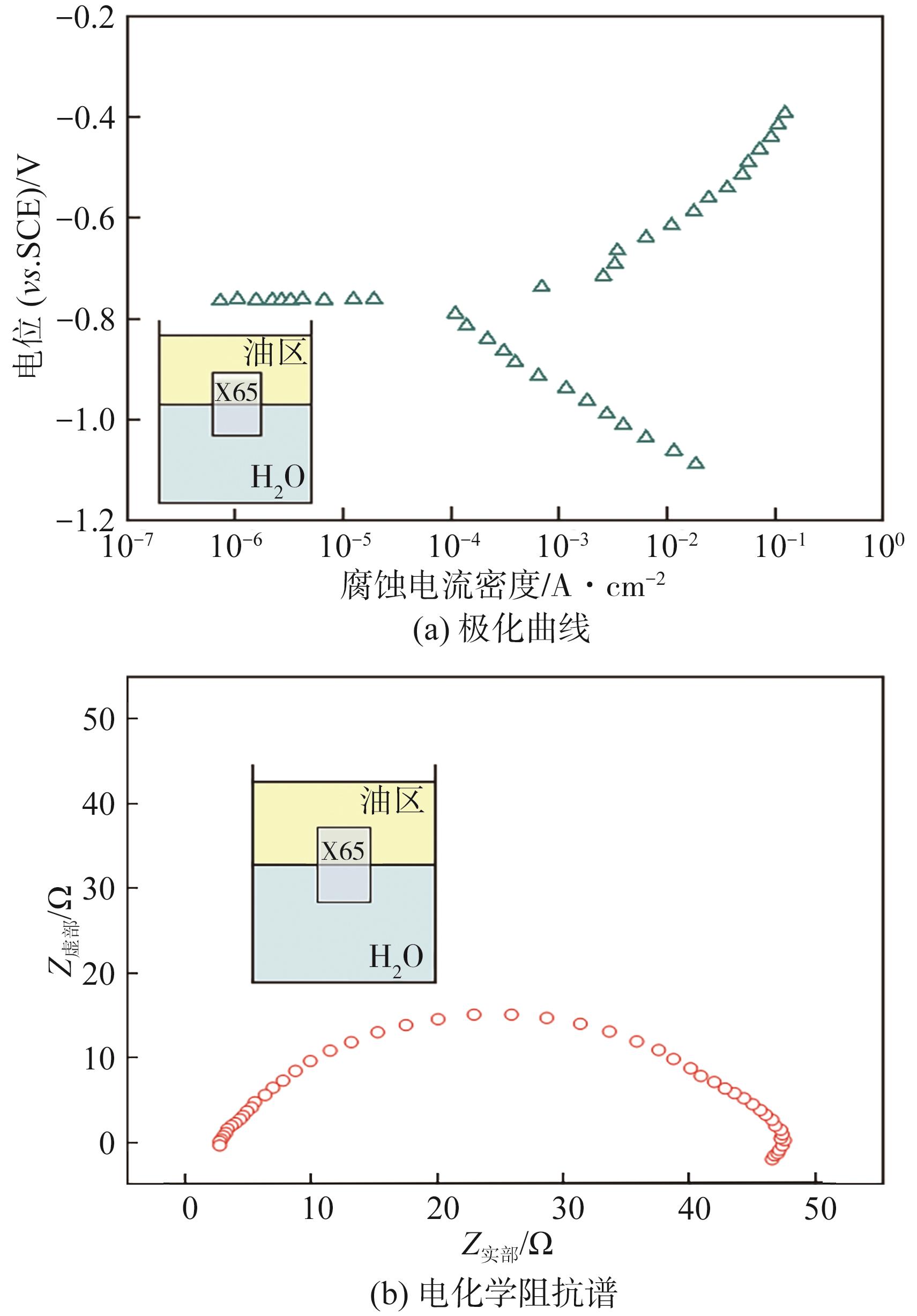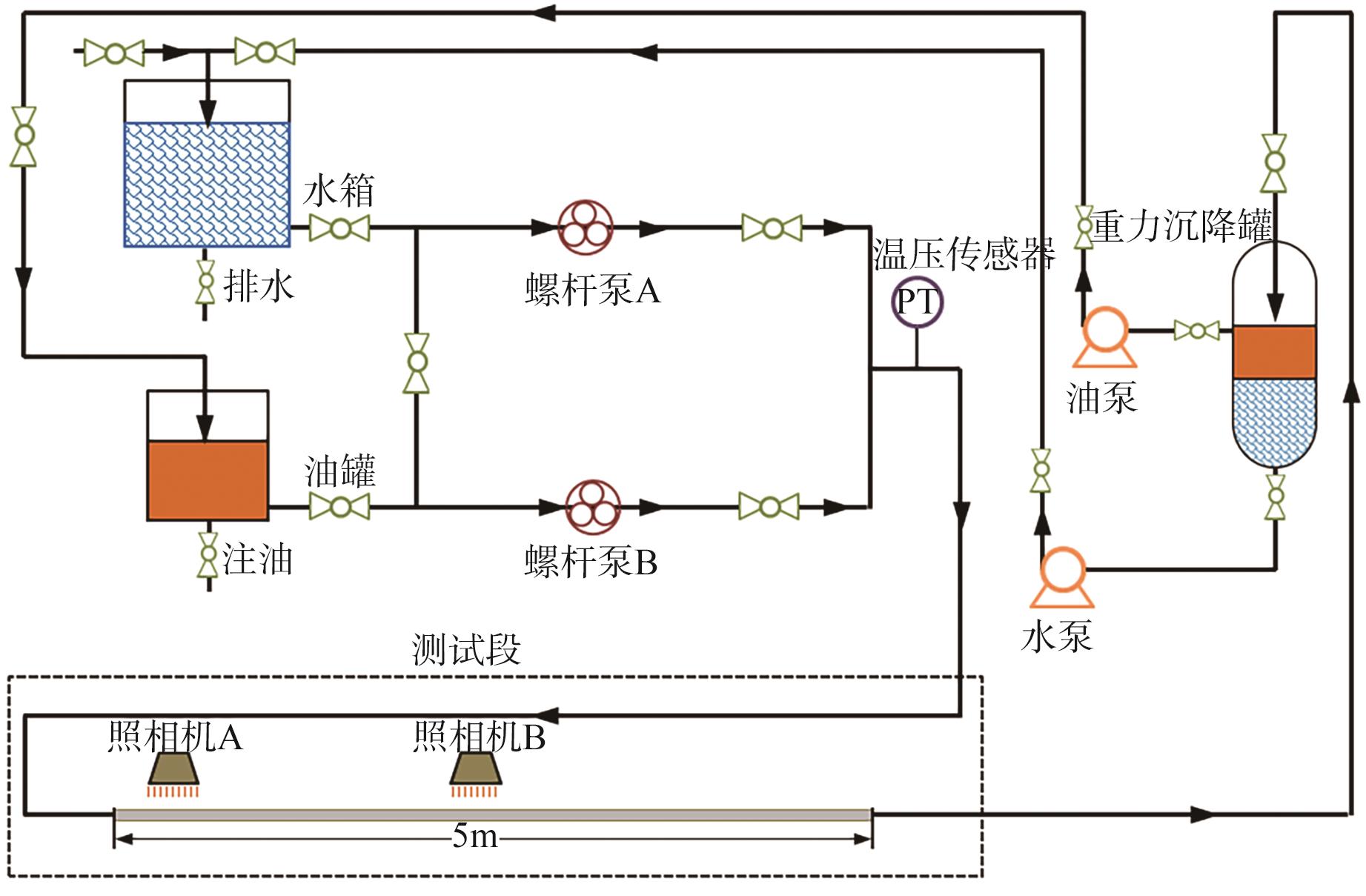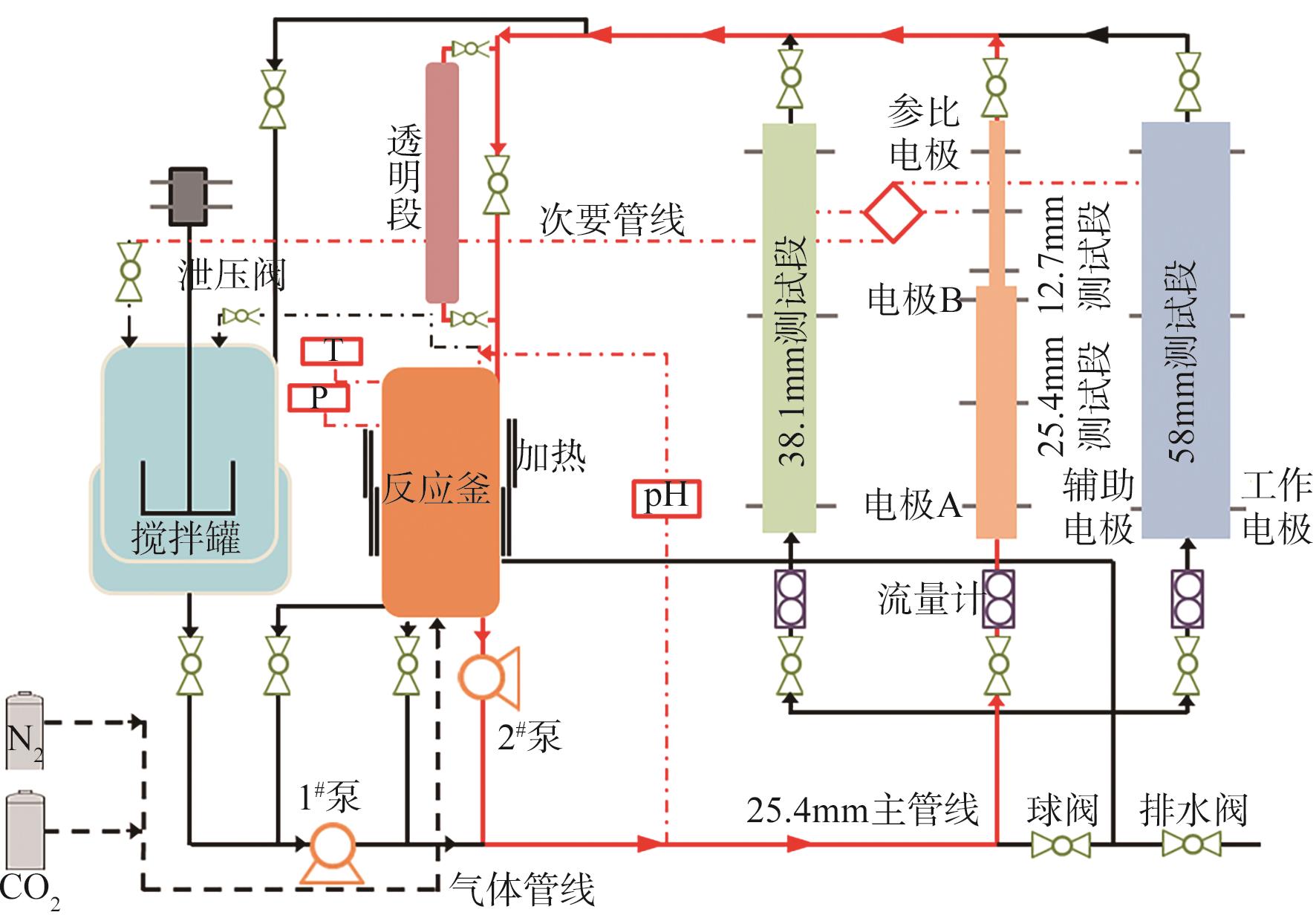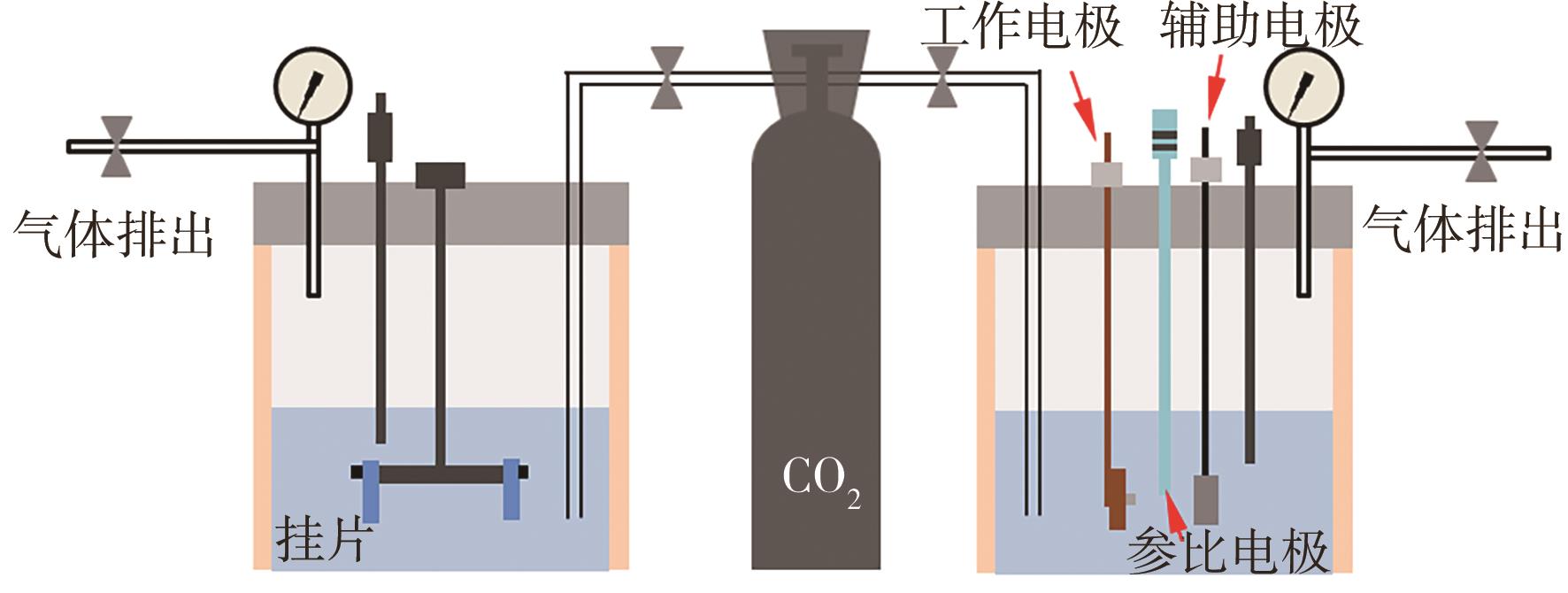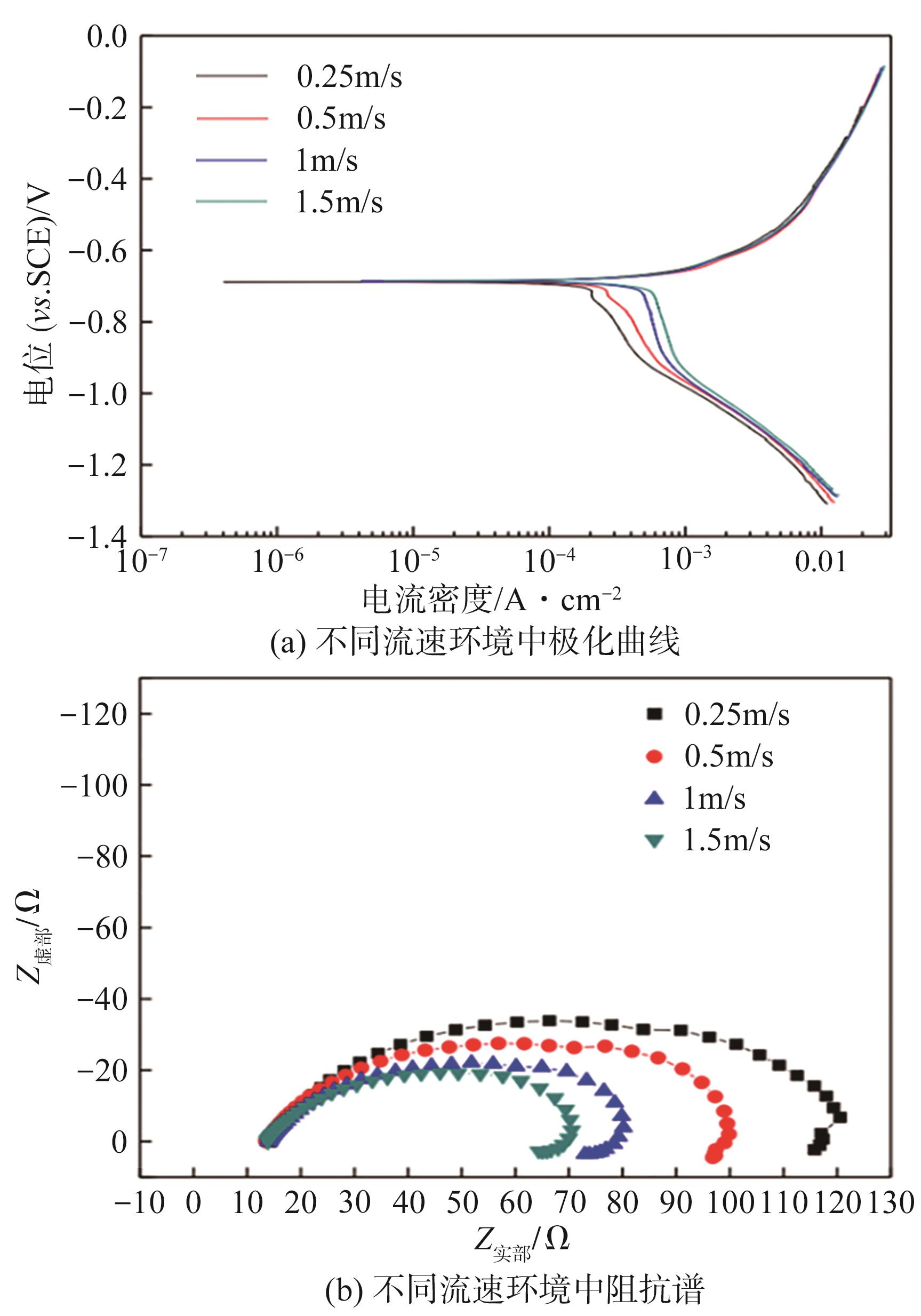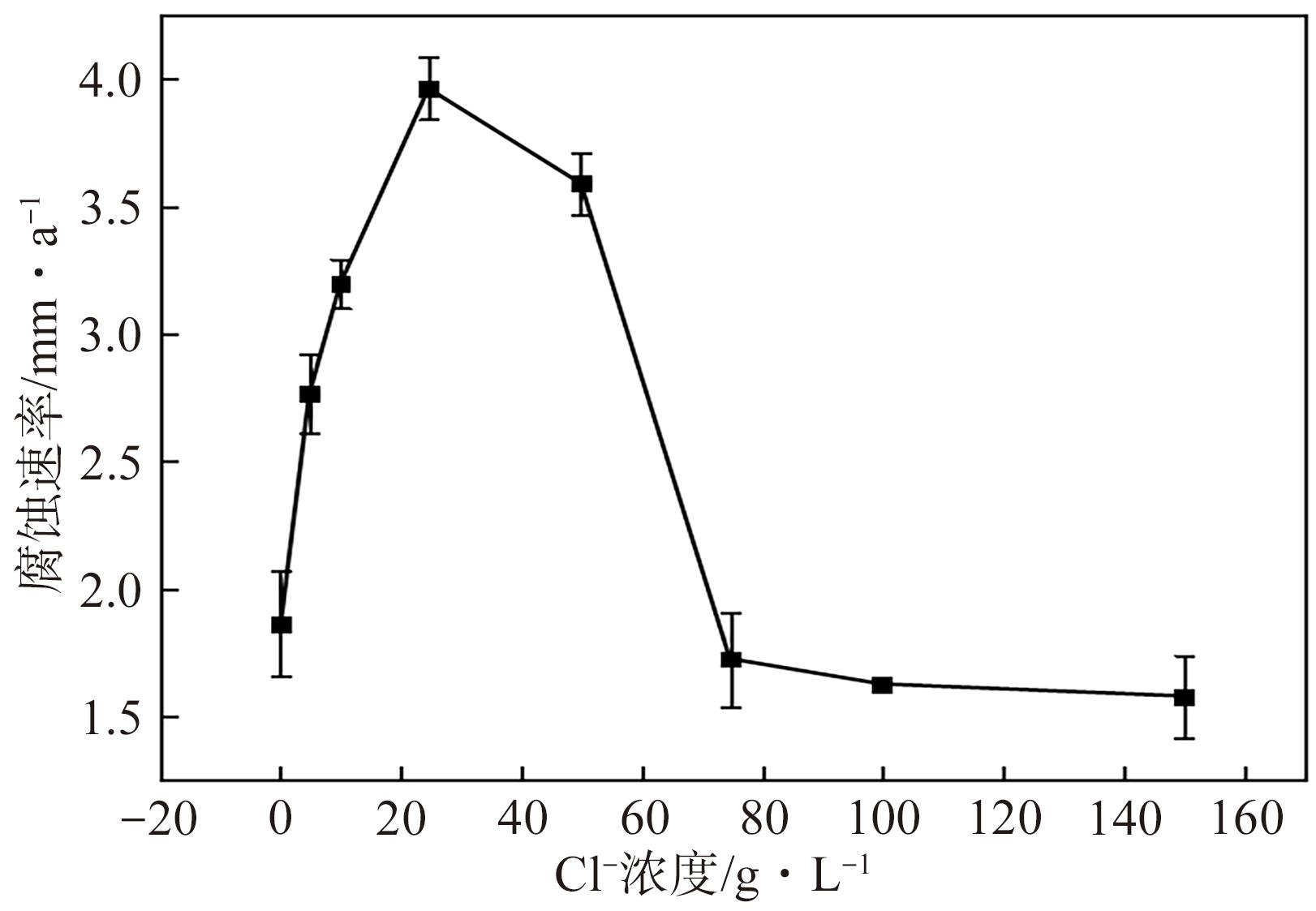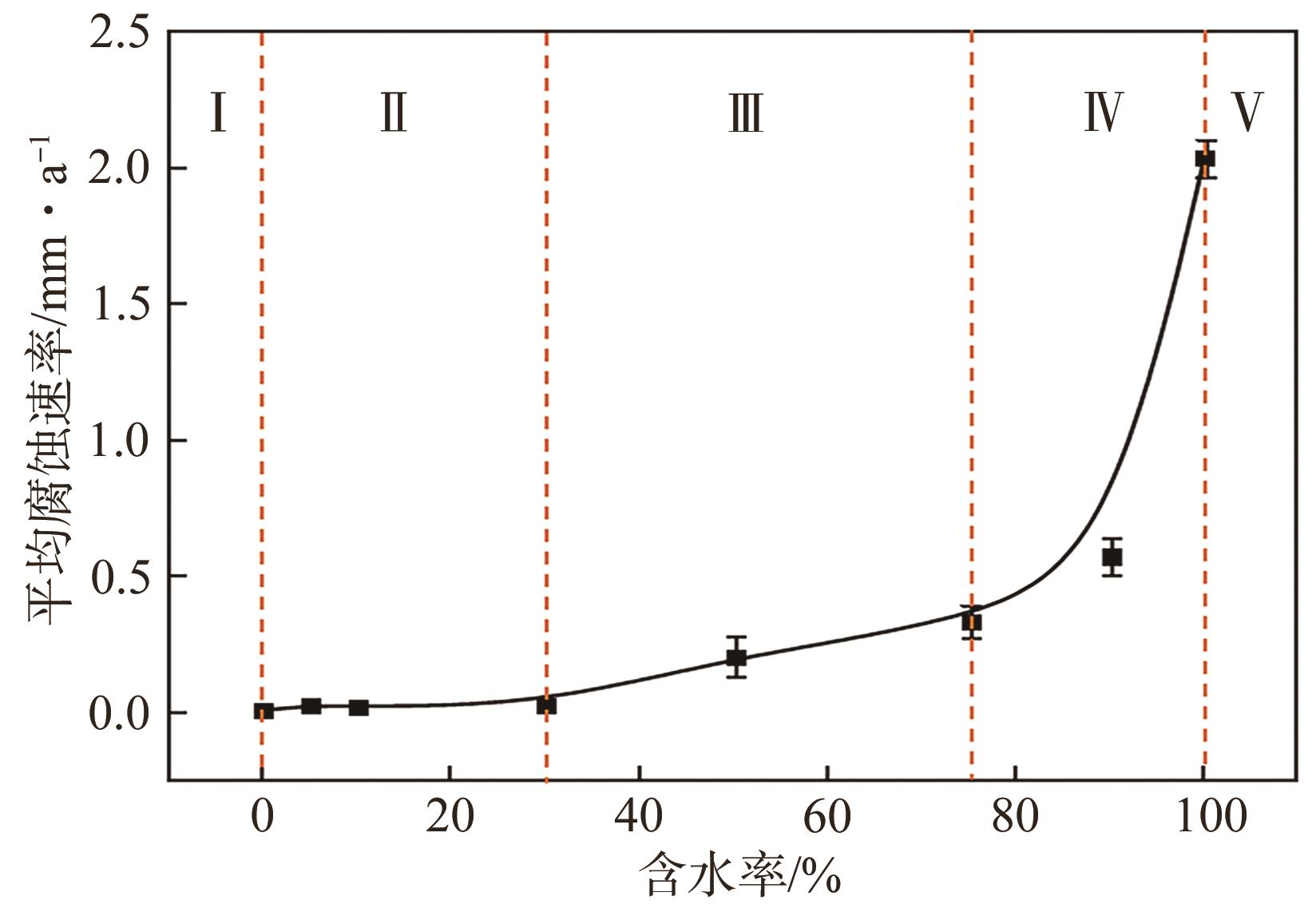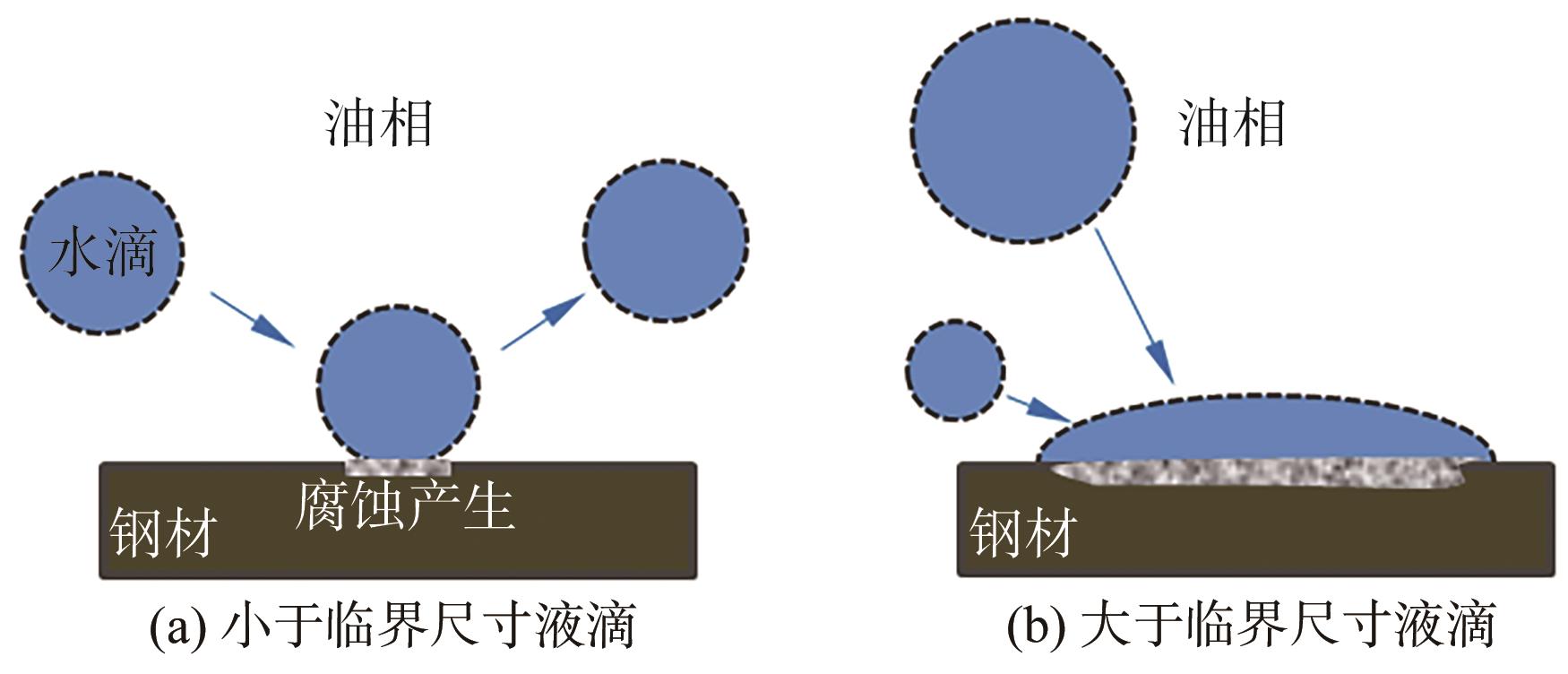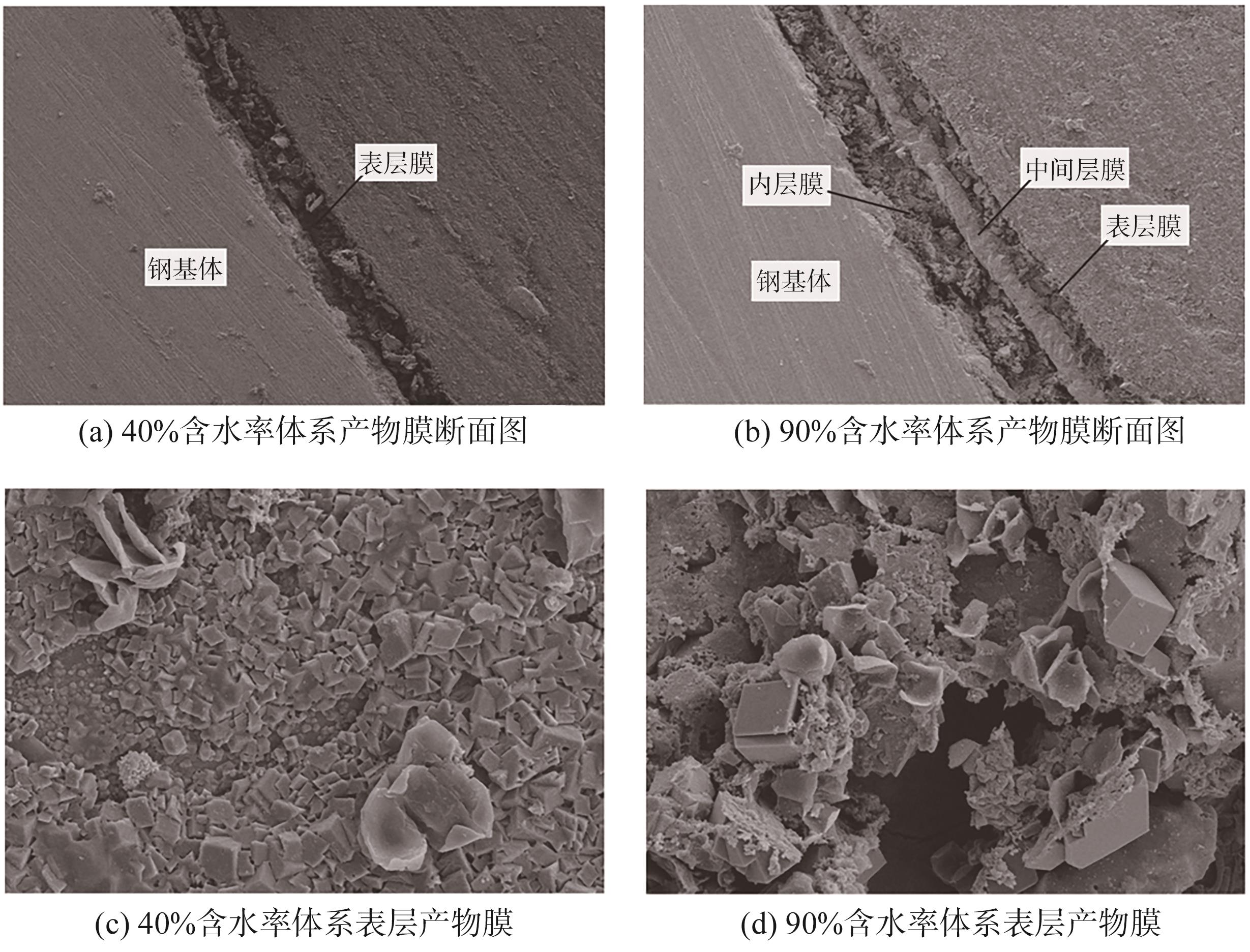Chemical Industry and Engineering Progress ›› 2024, Vol. 43 ›› Issue (10): 5353-5368.DOI: 10.16085/j.issn.1000-6613.2023-1651
• Chemical processes and equipment • Previous Articles
Corrosion characteristics of transportation pipelines in oil-water emulsion with CO2: A review
FU Xuan1,2,3( ), XING Xiaokai1,2,3(
), XING Xiaokai1,2,3( ), LI Xinze2,3
), LI Xinze2,3
- 1.College of Mechanical and Transportation Engineering, China University of Petroleum (Beijing), Beijing 102249, China
2.School of Engineering, China University of Petroleum (Beijing) at Karamay, Xinjiang, Karamay 834000, China
3.Xinjiang Key Laboratory of Multi-Medium Pipeline Safety Transportation, Urumqi 830000, Xinjiang, China
-
Received:2023-09-18Revised:2023-12-14Online:2024-10-29Published:2024-10-15 -
Contact:XING Xiaokai
油水混输管道CO2腐蚀特性研究进展
- 1.中国石油大学(北京)机械与储运工程学院,北京 102249
2.中国石油大学(北京)克拉玛依校区工学院,新疆 克拉玛依 834000
3.新疆多介质管道安全输送重点实验室,新疆 乌鲁木齐 830000
-
通讯作者:邢晓凯 -
作者简介:付璇(1987—),女,博士研究生,研究方向为油气管道腐蚀与防腐。E-mail:fuxuan@cupk.edu.cn。 -
基金资助:新疆维吾尔自治区2023年度自然科学基金面上项目;克拉玛依市创新环境建设计划(创新人才)(20232023hjcxrc0039)
CLC Number:
Cite this article
FU Xuan, XING Xiaokai, LI Xinze. Corrosion characteristics of transportation pipelines in oil-water emulsion with CO2: A review[J]. Chemical Industry and Engineering Progress, 2024, 43(10): 5353-5368.
付璇, 邢晓凯, 李欣泽. 油水混输管道CO2腐蚀特性研究进展[J]. 化工进展, 2024, 43(10): 5353-5368.
share this article
Add to citation manager EndNote|Ris|BibTeX
URL: https://hgjz.cip.com.cn/EN/10.16085/j.issn.1000-6613.2023-1651
| 研究装置 | 装置优势 | 装置缺点 | 常用表征方式 | 典型研究 | 主要研究结论 |
|---|---|---|---|---|---|
| 失重法高温高压腐蚀反应釜 | 建造成本低、操作简单、灵活性好、功能全面,可评价极端环境下材料性能,样品用量少,应用广泛 | 液体流动状态与实际管线差别大,无法直接研究不同流型下的CO2腐蚀行为 | 失重法平均腐蚀速率 | Liu等[ | 氯化物含量增加使碳钢腐蚀速率出现临界值 |
| 程远鹏等[ | CO2/油/水环境中钢材的腐蚀速率与含水率正相关 | ||||
| 孟凡娟等[ | 油水体系中3Cr钢相较于X65钢表现出更好的抗腐蚀性能 | ||||
| 张星等[ | 乳状液对腐蚀速率的影响与液滴粒径相关,存在临界尺寸 | ||||
| Zeng等[ | 温度和CO2分压会显著影响套管的CO2腐蚀速率 | ||||
| 三电极电化学腐蚀装置 | 装置成本低、使用方便、操作简单、耦合性强、应用广泛,可用于研究腐蚀动力学特性,分析微观腐蚀机理 | 要求溶液导电性好,在含油体系中存在局限性,高压体系应用较少 | 极化曲线、电化学阻抗谱和腐蚀速率 | Porcayo等[ | 以咖啡油为基础的衍生物具有良好的缓蚀性能 |
| Obot等[ | 湍流效果的增加削弱缓蚀剂性能 | ||||
| 贾巧燕[ | X65钢在油水分层介质的油相中几乎不被腐蚀 | ||||
| Ma等[ | 静态条件下粗糙的表面减轻了CO2 腐蚀 | ||||
| 张志慧等[ | 材料中铬含量的升高增加了CO2腐蚀电流密度 | ||||
| Li等[ | 气相中O2、SO2或NO2的存在加速X80钢的腐蚀 | ||||
| Silva等[ | 油品黏度影响乳状液类型和CO2腐蚀速率 | ||||
| 腐蚀模拟环道 | 流动形态可最大程度模拟实际油水混输管道,用于探究流型、流速和乳状液形态对CO2腐蚀行为的影响,可分析特定位置腐蚀行为 | 装置建设和运行成本高,操作复杂,实验周期长,样品用量和占地面积大,温度和压力精密控制 困难 | 通过耦合的测试段、搭载的电化学系统或腐蚀探针计算腐蚀速率 | 刘晓田[ | 段塞频率的增大加剧管道腐蚀 |
| Li等[ | 油水乳状液中腐蚀速率随含水率增加不断增大 | ||||
| Silva等[ | 原油的性质可影响乳状液的流动形态 | ||||
| Wang等[ | 通过油水交替输送降低CO2腐蚀风险 | ||||
| Silva等[ | 5DP钢的CO2腐蚀质量损失低于X80钢,表现出更好的抗腐蚀能力 |
| 研究装置 | 装置优势 | 装置缺点 | 常用表征方式 | 典型研究 | 主要研究结论 |
|---|---|---|---|---|---|
| 失重法高温高压腐蚀反应釜 | 建造成本低、操作简单、灵活性好、功能全面,可评价极端环境下材料性能,样品用量少,应用广泛 | 液体流动状态与实际管线差别大,无法直接研究不同流型下的CO2腐蚀行为 | 失重法平均腐蚀速率 | Liu等[ | 氯化物含量增加使碳钢腐蚀速率出现临界值 |
| 程远鹏等[ | CO2/油/水环境中钢材的腐蚀速率与含水率正相关 | ||||
| 孟凡娟等[ | 油水体系中3Cr钢相较于X65钢表现出更好的抗腐蚀性能 | ||||
| 张星等[ | 乳状液对腐蚀速率的影响与液滴粒径相关,存在临界尺寸 | ||||
| Zeng等[ | 温度和CO2分压会显著影响套管的CO2腐蚀速率 | ||||
| 三电极电化学腐蚀装置 | 装置成本低、使用方便、操作简单、耦合性强、应用广泛,可用于研究腐蚀动力学特性,分析微观腐蚀机理 | 要求溶液导电性好,在含油体系中存在局限性,高压体系应用较少 | 极化曲线、电化学阻抗谱和腐蚀速率 | Porcayo等[ | 以咖啡油为基础的衍生物具有良好的缓蚀性能 |
| Obot等[ | 湍流效果的增加削弱缓蚀剂性能 | ||||
| 贾巧燕[ | X65钢在油水分层介质的油相中几乎不被腐蚀 | ||||
| Ma等[ | 静态条件下粗糙的表面减轻了CO2 腐蚀 | ||||
| 张志慧等[ | 材料中铬含量的升高增加了CO2腐蚀电流密度 | ||||
| Li等[ | 气相中O2、SO2或NO2的存在加速X80钢的腐蚀 | ||||
| Silva等[ | 油品黏度影响乳状液类型和CO2腐蚀速率 | ||||
| 腐蚀模拟环道 | 流动形态可最大程度模拟实际油水混输管道,用于探究流型、流速和乳状液形态对CO2腐蚀行为的影响,可分析特定位置腐蚀行为 | 装置建设和运行成本高,操作复杂,实验周期长,样品用量和占地面积大,温度和压力精密控制 困难 | 通过耦合的测试段、搭载的电化学系统或腐蚀探针计算腐蚀速率 | 刘晓田[ | 段塞频率的增大加剧管道腐蚀 |
| Li等[ | 油水乳状液中腐蚀速率随含水率增加不断增大 | ||||
| Silva等[ | 原油的性质可影响乳状液的流动形态 | ||||
| Wang等[ | 通过油水交替输送降低CO2腐蚀风险 | ||||
| Silva等[ | 5DP钢的CO2腐蚀质量损失低于X80钢,表现出更好的抗腐蚀能力 |
| 影响因素 | 研究者 | 年份 | 研究装置/方法 | 水相 | 变量范围 | 主要结论 |
|---|---|---|---|---|---|---|
| 温度 | 魏爱军等[ | 2009 | 三电极体系 | 模拟采出水 | 40~80℃ | 钢材的腐蚀速率随温度上升而急剧升高 |
| 蔡乾锋等[ | 2016 | 腐蚀反应釜 | 现场采出水 | 30~55℃ | 钢材的腐蚀速率随温度上升而逐渐升高 | |
| Li等[ | 2016 | 腐蚀模拟环道 | 模拟采出水 | 35~75℃ | 油水乳状液中腐蚀速率随温度增加而不断增大 | |
| 刘晓旭等[ | 2017 | 腐蚀反应釜 | 现场采出水 | 40~110℃ | 腐蚀速率随温度升高先增大后减小 | |
| 程远鹏等[ | 2018 | 腐蚀反应釜和三电极体系 | 模拟采出水 | 40~80℃ | 腐蚀速率随温度升高先增大后减小 | |
| Zeng等[ | 2022 | 腐蚀反应釜 | 模拟采出水 | 30~150℃ | 腐蚀速率随温度升高先增大后减小 | |
| CO2分压 | 蔡乾锋等[ | 2016 | 腐蚀反应釜 | 现场采出水 | 1~5MPa | 钢材试样的腐蚀速率随CO2分压的增加先减小后增大 |
| 白羽等[ | 2017 | 腐蚀反应釜 | 模拟采出水 | 0.5~2.5MPa | 腐蚀速率随CO2分压的增大变化幅度很小 | |
| Silva等[ | 2019 | 腐蚀模拟环道 | 模拟采出水 | 0.5~2.0MPa | CO2分压的增加提高了腐蚀速率 | |
| Zeng等[ | 2022 | 腐蚀反应釜 | 模拟采出水 | 5~20MPa | 钢材的腐蚀速率随压力上升而不断增加 | |
| 流速 | 李建平等[ | 2004/2005 | 腐蚀反应釜 | — | 0.1~2.0m/s | 流速增加对腐蚀速率具有双重作用 |
| 崔铭伟等[ | 2015 | OLGA模拟 | — | 20~170kg/s | 流量的增加提高腐蚀速率 | |
| Li等[ | 2016 | 腐蚀模拟环道 | 模拟采出水 | 0.25~1.5m/s | 油水乳状液中CO2腐蚀速率随流速增加不断增大 | |
| 程振玉等[ | 2022 | CFD模拟 | — | 0.5~3.0m/s | 流速增加对腐蚀速率具有双重作用 |
| 影响因素 | 研究者 | 年份 | 研究装置/方法 | 水相 | 变量范围 | 主要结论 |
|---|---|---|---|---|---|---|
| 温度 | 魏爱军等[ | 2009 | 三电极体系 | 模拟采出水 | 40~80℃ | 钢材的腐蚀速率随温度上升而急剧升高 |
| 蔡乾锋等[ | 2016 | 腐蚀反应釜 | 现场采出水 | 30~55℃ | 钢材的腐蚀速率随温度上升而逐渐升高 | |
| Li等[ | 2016 | 腐蚀模拟环道 | 模拟采出水 | 35~75℃ | 油水乳状液中腐蚀速率随温度增加而不断增大 | |
| 刘晓旭等[ | 2017 | 腐蚀反应釜 | 现场采出水 | 40~110℃ | 腐蚀速率随温度升高先增大后减小 | |
| 程远鹏等[ | 2018 | 腐蚀反应釜和三电极体系 | 模拟采出水 | 40~80℃ | 腐蚀速率随温度升高先增大后减小 | |
| Zeng等[ | 2022 | 腐蚀反应釜 | 模拟采出水 | 30~150℃ | 腐蚀速率随温度升高先增大后减小 | |
| CO2分压 | 蔡乾锋等[ | 2016 | 腐蚀反应釜 | 现场采出水 | 1~5MPa | 钢材试样的腐蚀速率随CO2分压的增加先减小后增大 |
| 白羽等[ | 2017 | 腐蚀反应釜 | 模拟采出水 | 0.5~2.5MPa | 腐蚀速率随CO2分压的增大变化幅度很小 | |
| Silva等[ | 2019 | 腐蚀模拟环道 | 模拟采出水 | 0.5~2.0MPa | CO2分压的增加提高了腐蚀速率 | |
| Zeng等[ | 2022 | 腐蚀反应釜 | 模拟采出水 | 5~20MPa | 钢材的腐蚀速率随压力上升而不断增加 | |
| 流速 | 李建平等[ | 2004/2005 | 腐蚀反应釜 | — | 0.1~2.0m/s | 流速增加对腐蚀速率具有双重作用 |
| 崔铭伟等[ | 2015 | OLGA模拟 | — | 20~170kg/s | 流量的增加提高腐蚀速率 | |
| Li等[ | 2016 | 腐蚀模拟环道 | 模拟采出水 | 0.25~1.5m/s | 油水乳状液中CO2腐蚀速率随流速增加不断增大 | |
| 程振玉等[ | 2022 | CFD模拟 | — | 0.5~3.0m/s | 流速增加对腐蚀速率具有双重作用 |
| 1 | 刘畅, 陈旭, 杨江. CO2腐蚀及其缓蚀剂应用研究进展[J]. 化工进展, 2021, 40(11): 6305-6314. |
| LIU Chang, CHEN Xu, YANG Jiang. Corrosion inhibitors and its application in CO2 corrosion[J]. Chemical Industry and Engineering Progress, 2021, 40(11): 6305-6314. | |
| 2 | KAIRY S K, ZHOU S, TURNBULL A, et al. Corrosion of pipeline steel in dense phase CO2 containing impurities: A critical review of test methodologies[J]. Corrosion Science, 2023, 214: 110986. |
| 3 | 张卫风, 周武, 王秋华. 相变吸收捕集烟气中CO2技术的发展现状[J]. 化工进展, 2022, 41(4): 2090-2101. |
| ZHANG Weifeng, ZHOU Wu, WANG Qiuhua. Recent developments of phase-change absorption technology for CO2 capture from flue gas[J]. Chemical Industry and Engineering Progress, 2022, 41(4): 2090-2101. | |
| 4 | SILVA C A, VARELA L B, KOLAWOLE F O, et al. Multiphase-flow-induced corrosion and cavitation-erosion damages of API 5L X80 and API 5DP grade S steels[J]. Wear, 2020, 452/453: 203282. |
| 5 | 贾巧燕, 王贝, 王赟, 等. 油水两相界面处缓蚀剂的作用效果及机理[J]. 工程科学学报, 2020, 42(2): 225-232. |
| JIA Qiaoyan, WANG Bei, WANG Yun, et al. Inhibition effect and mechanism of corrosion inhibitor at oil-water interface region[J]. Chinese Journal of Engineering, 2020, 42(2): 225-232. | |
| 6 | ZENG Dezhi, DONG Baojun, ZHANG Sisong, et al. Annular corrosion risk analysis of gas injection in CO2 flooding and development of oil-based annulus protection fluid[J]. Journal of Petroleum Science and Engineering, 2022, 208: 109526. |
| 7 | SILVA Carlos A DA, David Filho, NUNES Gislaine Maria, et al. Corrosion in multiphase slug flow loop in deep-water oil and gas exploitation[C]//Offshore Technology Conference Brasil. Riode, Janeiro, Brasil, 2019. |
| 8 | CHEN Longjun, LIU Wei, DONG Baojun, et al. Dynamic mechanism of corrosion products formed on carbon steel in CO2 environment: Effect of silty sand[J]. Corrosion Science, 2023, 221: 111355. |
| 9 | LIU Qingyou, MAO Liangjie, ZHOU Shouwei. Effects of chloride content on CO2 corrosion of carbon steel in simulated oil and gas well environments[J]. Corrosion Science, 2014, 84: 165-171. |
| 10 | EFIRD K D, JASINSKI R J. Effect of the crude oil on corrosion of steel in crude oil/brine production[J]. Corrosion, 1989, 45(2): 165-171. |
| 11 | HERNANDEZ Sandra, VERA Jose, MENDEZ Conchita, et al. On the mechanism of corrosion inhibition by crude oils[J]. Corrosion, 2001, 11(3): 1030-1044. |
| 12 | HERNANDEZ Sandra, DUPIAT Simona, VERA Jose R, et al. A ststistical approach for analyzing the inhibiting effect of different types of crude oil in CO2 corrosion of carbon steel[C]//NACE Corrosion 2002,Denver, Colorado 2002. |
| 13 | 王健. 油水交替润湿环境中碳钢缓蚀机理研究[D]. 北京: 中国石油大学(北京), 2016. |
| WANG Jian. Releasing mechanism of carbon steel in periodically oil-water intermittent wetting condition[D]. Beijing: China University of Petroleum (Beijing), 2016. | |
| 14 | ALBERTO DA SILVA Carlos, FILHO David, PIMENTEL Tarcisio, et al. Analysis of crude oil effect for CO2 corrosion of carbon steel-A rotating cylinder electrode approach[J]. Geoenergy Science and Engineering, 2023, 229: 212085. |
| 15 | CRAIG Bruce. Predicting the conductivity of water-in-oil solutions as a means to estimate corrosiveness[J]. Corrosion Science, 1998, 54(3): 657-662. |
| 16 | 张昆. 混输管道内腐蚀及影响因素分析[J]. 油气田地面工程, 2008, 27(6): 32-33. |
| ZHANG Kun. Analysis of internal corrosion and influencing factors in multiphase transport pipeline[J]. Oil-Gasfield Surface Engineering, 2008, 27(6): 32-33. | |
| 17 | DANA Mohammad Mahdi, JAVIDI Mehdi. Corrosion simulation via coupling computational fluid dynamics and NORSOK CO2 corrosion rate prediction model for an outlet header piping of an air-cooled heat exchanger[J]. Engineering Failure Analysis, 2021, 122: 105285. |
| 18 | ZHANG Q H, XU N. Developing two amino acid derivatives as high-efficient corrosion inhibitors for carbon steel in the CO2-containing environment[J]. Industrial Crops and Products, 2023, 201: 116883. |
| 19 | HU Haitao, CHENG Y Frank. Modeling by computational fluid dynamics simulation of pipeline corrosion in CO2-containing oil-water two phase flow[J]. Journal of Petroleum Science and Engineering, 2016, 146: 134-141. |
| 20 | FARHADIAN Abdolreza, ZHAO Yang, NAEIJI Parisa, et al. Simultaneous inhibition of natural gas hydrate formation and CO2/H2S corrosion for flow assurance inside the oil and gas pipelines[J]. Energy, 2023, 269: 126797. |
| 21 | LI Qiang, HU Haitao, CHENG Y Frank. Corrosion of pipelines in CO2-saturated oil-water emulsion flow studied by electrochemical measurements and computational fluid dynamics modeling[J]. Journal of Petroleum Science and Engineering, 2016, 147: 408-415. |
| 22 | MA Wenlong, WANG Hanxiang, BARKER Richard, et al. Corrosion behaviour of X65 carbon steel under the intermittent oil/water wetting: A synergic effect of flow velocity and alternate immersion period[J]. Corrosion Science, 2021, 187: 109507. |
| 23 | 程振玉, 王丹, 谢飞, 等. 油水两相流体系下的CO2腐蚀行为研究[J]. 辽宁石油化工大学学报, 2022, 42(1): 41-46. |
| CHENG Zhenyu, WANG Dan, XIE Fei, et al. Study of CO2 corrosion behavior under oil-water two-phase flow system[J]. Journal of Liaoning Petroleum & Chemical University, 2022, 42(1): 41-46. | |
| 24 | QIN Min, LIAO Kexi, HE Guoxi, et al. Corrosion mechanism of X65 steel exposed to H2S/CO2 brine and H2S/CO2 vapor corrosion environments[J]. Journal of Natural Gas Science and Engineering, 2022, 106: 104774. |
| 25 | 程远鹏, 白羽, 郑度奎, 等. X65钢在CO2/油/水环境中的腐蚀特性试验[J]. 油气储运, 2019, 38(8): 863-869. |
| CHENG Yuanpeng, BAI Yu, ZHENG Dukui, et al. Test on the corrosion behavior of X65 steel in the simulated CO2/oil/water environment[J]. Oil & Gas Storage and Transportation, 2019, 38(8): 863-869. | |
| 26 | YUE Xiaoqi, ZHANG Lei, MA Lei, et al. Influence of a small velocity variation on the evolution of the corrosion products and corrosion behaviour of super 13Cr SS in a geothermal CO2 containing environment[J]. Corrosion science, 2021, 178: 108983. |
| 27 | WANG Yun, WANG Bei, XING Xijin, et al. Effects of flow velocity on the corrosion behaviour of super 13Cr stainless steel in ultra-HTHP CO2-H2S coexistence environment[J]. Corrosion Science, 2022, 200: 110235. |
| 28 | LI Kaiyang, ZENG Yimin. Advancing the mechanistic understanding of corrosion in supercritical CO2 with H2O and O2 impurities[J]. Corrosion Science, 2023, 213: 110981. |
| 29 | 刘安庆. 超临界CO2-原油-水共存条件下碳钢腐蚀规律研究[D]. 北京: 中国石油大学(北京), 2016. |
| LIU Anqing. Study on the corrosion of carbon steel in supercritical CO2, crude and water conditions[D]. Beijing: China University of Petroleum (Beijing), 2016. | |
| 30 | LENG Jihui, CHENG Y Frank, LIAO Kexi, et al. Synergistic effect of O2-Cl- on localized corrosion failure of L245N pipeline in CO2-O2-Cl- environment[J]. Engineering failure analysis, 2022, 138: 106332. |
| 31 | LI Chen, XIANG Yong, WANG Rongteng, et al. Exploring the influence of flue gas impurities on the electrochemical corrosion mechanism of X80 steel in a supercritical CO2-saturated aqueous environment[J]. Corrosion Science, 2023, 211: 110899. |
| 32 | WANG Kai, WANG Ziming, SONG Guangling. Batch transportation of oil and water for reducing pipeline corrosion[J]. Journal of petroleum science and engineering, 2020, 195: 107583. |
| 33 | ZAFAR Muhammad Nauman, RIHAN Rihan, Luai AL-HADHRAMI. Evaluation of the corrosion resistance of SA-543 and X65 steels in emulsions containing H2S and CO2 using a novel emulsion flow loop[J]. Corrosion Science, 2015, 94: 275-287. |
| 34 | YUE Xiaoqi, REN Yongqiang, HUANG Luyao, et al. The role of Cl- in the formation of the corrosion products and localised corrosion of 15Cr martensite stainless steel under an CO2-containing extreme oilfield condition[J]. Corrosion Science, 2022, 194: 109935. |
| 35 | HU Xinming, NEVILLE Anne. CO2 erosion-corrosion of pipeline steel (API X65) in oil and gas conditions—A systematic approach[J]. Wear, 2009, 267(11): 2027-2032. |
| 36 | 孟凡娟, 王清, 李慧心, 等. 3Cr钢在油水两相层流工况下的腐蚀行为[J]. 工程科学学报, 2020, 42(8): 1029-1039. |
| MENG Fanjuan, WANG Qing, LI Huixin, et al. Corrosion behavior for 3Cr steel under oil-water two-phase laminar flow conditions[J]. Chinese Journal of Engineering, 2020, 42(8): 1029-1039. | |
| 37 | 张星, 赵琳, 刘安庆, 等. 高温高压CO2驱采出液中N80碳钢局部腐蚀诱发机理[J]. 腐蚀与防护, 2021, 42(4): 36-42. |
| ZHANG Xing, ZHAO Lin, LIU Anqing, et al. Initiation of localized corrosion on N80 carbon steel in high-pressure and high-temperature CO2 enhanced oil recovery production fluids[J]. Corrosion and Protection, 2021, 42(4): 36-42. | |
| 38 | PORCAYO-CALDERON J, DE LA ESCALERA L M Martínez, CANTO J, et al. Imidazoline derivatives based on coffee oil as CO2 corrosion inhibitor[J]. International Journal of Electrochemical Science, 2015, 10(4): 3160-3176. |
| 39 | OBOT Ime Bassey, ONYEACHU Ikenna B, UMOREN Saviour A. Alternative corrosion inhibitor formulation for carbon steel in CO2-saturated brine solution under high turbulent flow condition for use in oil and gas transportation pipelines[J]. Corrosion Science, 2019, 159: 108140. |
| 40 | MA Wenlong, WANG Hanxiang, WANG Yongxing, et al. Experimental and simulation studies of the effect of surface roughness on corrosion behaviour of X65 carbon steel under intermittent oil/water wetting[J]. Corrosion Science, 2022, 195: 109947. |
| 41 | 张志慧, 武会宾, 顾洋, 等. 低碳中铬钢在模拟CO2驱油环境中的电化学行为[J]. 腐蚀与防护, 2022, 43(9): 52-58. |
| ZHANG Zhihui, WU Huibin, GU Yang, et al. Electrochemical behavior of low carbon medium chromium steel in simulated CO2 enhanced oil recovery environment[J]. Corrosion and Protection, 2022, 43(9): 52-58. | |
| 42 | 刘晓田. 含二氧化碳段塞流管道腐蚀实验研究[D]. 青岛: 中国石油大学(华东), 2014. |
| LIU Xiaotian. Experimental study on pipeline corrosion of slug flow including carbon dioxide[D]. Qingdao: China University of Petroleum (East China), 2014. | |
| 43 | 魏爱军, 霍富永, 王茜, 等. CO2驱油地面集输管道的腐蚀电化学行为[J]. 腐蚀与防护, 2009, 30(6): 383-385. |
| WEI Aijun, HUO Fuyong, WANG Qian, et al. Electrochemical behavior in corrosion of gathering and transfer pipelines for CO2 flooding[J]. Corrosion and Protection, 2009, 30(6): 383-385. | |
| 44 | 蔡乾锋, 朱世东, 李金灵, 等. 20钢在模拟CO2驱工况环境中的腐蚀行为[J]. 腐蚀与防护, 2016, 37(8): 653-656. |
| CAI Qianfeng, ZHU Shidong, LI Jinling, et al. Corrosion behavior of 20 steel in simulated working environment of CO2 flooding[J]. Corrosion and Protection, 2016, 37(8): 653-656. | |
| 45 | 刘晓旭, 许晶晶, 王磊, 等. 二氧化碳驱注采井常用油套管钢的腐蚀行为[J]. 腐蚀与防护, 2017, 38(7): 529-532. |
| LIU Xiaoxu, XU Jingjing, WANG Lei, et al. Corrosion behavior of well tube steels for CO2 flooding injection and production wells[J]. Corrosion and Protection, 2017, 38(7): 529-532. | |
| 46 | 程远鹏, 白羽, 李自力, 等. 集输管道CO2/油/水环境中X65钢的腐蚀特征[J]. 工程科学学报, 2018, 40(5): 594-604. |
| CHENG Yuanpeng, BAI Yu, LI Zili, et al. Corrosion characteristics of X65 steel in CO2/oil/water environment of gathering pipeline[J]. Chinese Journal of Engineering, 2018, 40(5): 594-604. | |
| 47 | 白羽, 李自力, 程远鹏. 集输管线钢在CO2/油/水多相流环境中的腐蚀行为[J]. 腐蚀与防护, 2017, 38(3): 204-207, 213. |
| BAI Yu, LI Zili, CHENG Yuanpeng. Corrosion behavior of gathering pipeline steel in the CO2/oil/water corrosive environment[J]. Corrosion and Protection, 2017, 38(3): 204-207, 213. | |
| 48 | 李建平, 赵国仙, 郝士明, 等. 常用油管钢的CO2局部腐蚀速率[J]. 东北大学学报, 2004, 25(11): 1069-1071. |
| LI Jianping, ZHAO Guoxian, HAO Shiming, et al. Local corrosion rate of conventional tubing steels[J]. Journal of Northeastern University, 2004, 25(11): 1069-1071. | |
| 49 | 李建平, 赵国仙, 郝士明. 几种因素对油套管钢CO2腐蚀行为影响[J]. 中国腐蚀与防护学报, 2005, 25(4): 241-244. |
| LI Jianping, ZHAO Guoxian, HAO Shiming. Dynamic corrosion behaviors of N80, P105 and SM110 steel[J]. Journal of Chinese Society for Corrosion and Protection, 2005, 25(4): 241-244. | |
| 50 | 崔铭伟, 俞天军, 封子艳, 等. 含CO2油水混输管道内腐蚀仿真研究[J]. 油气储运, 2015, 34(9): 983-987. |
| CUI Mingwei, YU Tianjun, FENG Ziyan, et al. Pipeline internal corrosion simulation for CO2-containing oil-water mixed transportation[J]. Oil & Gas Storage and Transportation, 2015, 34(9): 983-987. | |
| 51 | NIU Qingwei, LI Zili, CUI Gan, et al. effect of flow rate on the corrosion behavior of N80 steel in simulated oil field environment containing CO2 and HAc[J]. International Journal of Electrochemical Science, 2017, 12(11): 10279-10290. |
| 52 | MANSOORI H, YOUNG D, BROWN B, et al. Influence of calcium and magnesium ions on CO2 corrosion of carbon steel in oil and gas production systems-A review[J]. Journal of Natural Gas Science and Engineering, 2018, 59: 287-296. |
| 53 | VIDEN K, DUGSTAD A. Effect of flow rate, pH, Fe2+ concentration and steel quality on the CO2 corrosion of carbon steels[C]//Corrosion, 1987. San Franciso, CA, USA, 1987. |
| 54 | HEDAYAT A, POSTLETHWAITE J, YANNACOPOULOS S. Conjoint action of CO2 corrosion and reciprocating sliding wear on plain carbon steel[J]. Corrosion, 1992, 48(11): 953. |
| 55 | 李辉, 于海, 刘晓庆, 等. CO2分压和矿化度对J55管材的腐蚀影响[J]. 腐蚀与防护, 2022, 43(10): 51-56, 62. |
| LI Hui, YU Hai, LIU Xiaoqing, et al. Influences of CO2 partial pressure and salinity on corrosion of J55 steel tubing[J]. Corrosion and Protection, 2022, 43(10): 51-56, 62. | |
| 56 | NAVABZADEH ESMAEELY Saba, CHOI Yoon-Seok, YOUNG David, et al. Effect of calcium on the formation and protectiveness of iron carbonate layer in CO2 corrosion[J]. Corrosion, 2013, 69(9): 912-920. |
| 57 | ZHAO Guoxian, LI Jianping, HAO Shiming, et al. Effect of Ca2+ and Mg2+ on CO2 corrosion behavior of tube steel[J]. Journal of Iron and Steel Research International, 2005, 12(1): 38-42. |
| 58 | DING Chen, GAO Kewei, CHEN Changfeng. Effect of Ca2+ on CO2 corrosion properties of X65 pipeline steel[J]. International Journal of Minerals, Metallurgy and Materials, 2009, 16(6): 661-666. |
| 59 | GAO Kewei, YU Fang, PANG Xiaolu, et al. Mechanical properties of CO2 corrosion product scales and their relationship to corrosion rates[J]. Corrosion Science, 2008, 50(10): 2796-2803. |
| 60 | YAN Wei, ZHU Peike, DENG Jingen. Corrosion behaviors of SMSS 13Cr and DSS 22Cr in H2S/CO2-oil-water environment[J]. International Journal of Electrochemical Science, 2016, 11(11): 9542-9558. |
| 61 | POTS B, KAPUSTA S, JOHN R, et al. Improvement on de Waard-Milliams corrosion prediction and application to corrosion management[C]// Corrosion 2002. Denver, Colorado, 2002. |
| 62 | SUN Jianbo, SUN Chong, ZHANG Guoan, et al. Effect of water cut on the localized corrosion behavior of P110 tubes-teel in supercritical CO2/oil/water environment[J]. Corrosion, 2016, 72(11): 1470-1482. |
| 63 | WEI Liangtian, PANG Xiaolu, GAO Kewei. Effects of crude oil on the corrosion behavior of pipeline steel under wet CO2 conditions[J]. Materials Performance, 2015, 54(5): 58-62. |
| 64 | 孙冲, 孙建波, 王勇, 等. 超临界CO2/油/水系统中油气管材钢的腐蚀机制[J]. 金属学报, 2014, 50(7): 811-820. |
| SUN Chong, SUN Jianbo, WANG Yong, et al. Corrosion mechanism of OCTG carbon steel in supercritical CO2/oil/water system[J]. Acta Metallurgica Sinica, 2014, 50(7): 811-820. | |
| 65 | 周亮. CO2驱集输系统油水混合状态与腐蚀关系的研究[D]. 青岛: 中国石油大学(华东), 2014. |
| ZHOU Liang. Study on the relationship between corrosion and oil-water mixed state in CO2 enhanced oil recovery gathering system[D]. Qingdao: China University of Petroleum (East China), 2014. | |
| 66 | ZHANG Y B, YAN K, CHE D F. Effect of Slug Flow on CO2 Corrosion[C]// The 6th International Symposium on Multiphase Flow Heat Mass Transfer and Energy Conversion. Xi’an, China, 2010. |
| 67 | 郑东宏, 车得福, 贺林, 等. 油气管道CO2腐蚀过程中弹状流的影响[J]. 腐蚀与防护, 2007, 28(2): 77-81. |
| ZHENG Donghong, CHE Defu, HE Lin, et al. Effect of slug flow on CO2 corrosion of pipeline in oil and gas industry[J]. Corrosion and Protection, 2007, 28(2): 77-81. | |
| 68 | PALACIOS C A, SHADLEY J R. Characteristics of corrosion scales on steels in CO2 saterated NaCl brine[J]. Corrosion, 1991, 47(2): 122-127. |
| 69 | 李春福, 张颖, 王斌, 等. X56钢油气集输管道的CO2腐蚀电化学研究[J]. 天然气工业, 2004, 24(12): 145-148. |
| LIU Chunfu, ZHANG Ying, WANG Bin, et al. Study on CO2 electrochemical corrosion for oil/gas gathering pipeline with X56 steel[J]. Natural Gas Industry, 2004, 24(12): 145-148. | |
| 70 | ZHANG Jian, WANG Zenglin, WANG Ziming, et al. Chemical analysis of the initial corrosion layer on pipeline steels in simulated CO2-enhanced oil recovery brines[J]. Corrosion Science, 2012, 65: 397-404. |
| 71 | RAMACHANDRAN S, CAMPBELL S, WARD M B. Interactions and properties of corrosion inhibitors with by-product layers[J]. Corrosion, 2001, 57(6): 508-515. |
| 72 | NORSOK Standard No1.M-506 CO2corrosion rate calculation model[S]. 2005. |
| 73 | JEPSON W P, STITZEL S, KANG C, et al. Model for sweet corrosion in horizontal multiphase slug flow[C]// Corrosion 97.New Orleans, Louisiana, 1997. |
| 74 | GARTLAND P O, SALOMONSEN J E. A pipeline integrity management strategy based on multiphase fluid flow and corrosion modeling[C]// Corrosion 99. San Antonio, Texas, 1999. |
| 75 | SMITH Liane, DE WAARD Kees, CRAIG Bruce D. The influence of crude oils on weil tubing corrosion rates[C]// Corrosion 2003. San Diego California, 2003. |
| 76 | SMITH L, BARTLETT P, CUNNINGHAM H. modeling corrosion rates in oil production tubing[C]//Eurocorr, 2001. |
| 77 | NESIC Srdjan. Key issues related to modeling of internal of corrosion of oil and gas pipelines—A review[J]. Corrosion Science, 2007, 49: 4308-4338. |
| 78 | NESIC Srdjan, WANG Shihuai, CAI Jiyong, et al. Integrated CO2 corrosion-multiphase flow model[C]//SPE International symposium on Oilfield. Corrosion Aberdeen United Kingdom, 2004. |
| 79 | 蒋宏业, 刘映雪, 何莎, 等. 集输管道CO2腐蚀预测机理模型研究[J]. 西南石油大学学报(自然科学版), 2023, 45(2): 178-188. |
| JANG Hongye, LIU Yingxue, HE Sha, et al. A study on mechanistic prediction model of gathering pipelines in CO2 environment[J]. Journal of Southwest Petroleum University (Science & Technology Edition), 2023, 45(2): 178-188. |
| [1] | ZHANG Dongxu, LIU Cheng, SONG Lechun, HUANG Qiyu, WANG Wei. Nucleation process of gas hydrates in the emulsion system: A review [J]. Chemical Industry and Engineering Progress, 2024, 43(6): 3007-3020. |
| [2] | WU Jinxing, YANG Yukun, NI Shuo, LI Junchao. Experimental and numerical research on comprehensive characteristics of the sinusoidal tube [J]. Chemical Industry and Engineering Progress, 2017, 36(08): 2847-2853. |
| [3] | PENG Zhigang, ZHANG Jian, ZOU Changjun, CHEN Dajun, ZHENG Yong. Research on CO2 corrosion resistance performance of one kind environmental response cement stone [J]. Chemical Industry and Engineering Progress, 2017, 36(05): 1953-1959. |
| [4] | XIANG Shuguang, WANG Jiye. Research progress in catalyst activity in Nd-catalyzed isoprene rubber [J]. Chemical Industry and Engineering Progree, 2015, 34(3): 720-723. |
| [5] | REN Xiaoguang,XIE Yunfeng,XUAN Zhengnan. Inhibition efficiency of BTA compound corrosion inhibitor [J]. Chemical Industry and Engineering Progree, 2007, 26(4): 577-. |
| Viewed | ||||||
|
Full text |
|
|||||
|
Abstract |
|
|||||

